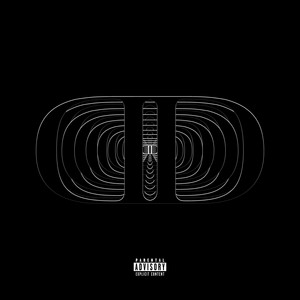Emily’s Weekly Political Scoop: Haitian Immigration and Carol Moseley Braun
September 29, 2021
Welcome to the first article of the 2021-2022 school year for Emily’s Political Scoop. Normally, we would jump right into what you came here for, but I want to address some exciting additions and changes that will be in my articles. I am introducing a section called Immerse into the Diverse that will cover inspirational political figures that have influenced diversity today, and each week we will be focusing on one major political subject that ties into our school community. Now, let’s jump right in!
Immigration: As you may have heard, 16,000 migrants, primarily from Haiti, set up camp under the bridge that connects Texas and Mexico (the Del Rio International Bridge in Texas), according to writer Stephania Corpi for NPR. What you may not know is why (spoiler alert: there has been an ongoing increase of people at the border for weeks). BBC reports that most are fleeing due to a disastrous earthquake from 2010 as well as one in recent. Further, Haiti has been experiencing ongoing months of political instability after their President was assassinated in July. The loss of hope plaguing many Haitians was the breaking point to migrating to South America, which is no easy feat. Fiterson Janiver, a Haitain man staying in one of the Mexican border towns, shared his first-hand experience after travelling through 11 countries. His reasoning behind migrating with his family was due the earthquake, family ties in America, and better opportunities to climb the social ladder. He detailed how he saw dead bodies, got robbed, and witnessed women being raped. His story is similar to many who traveled to the border (Bernd).
Further reasoning behind their migration is due to the constrictive immigration policies in the Latin American countries they have been inhabiting, such as Chile. For a more welcoming experience and better job opportunities, they began to make their way to America, under the impression that they will be allowed in if they go to an entry point; however, they were met with something way different (Bernd).
About a week ago, another BBC article reported that about 13,000 migrants, mostly Haitian, were under the bridge in a camp-like setting. Photos were then released picturing horseback riding border agents whipping migrants with their reins to push them back (“Migrants in Texas: US Probes Horseback Charge on Haiti Migrants”). Prior to this event, the US was already flying migrants back to Haiti over the weekend, according to another BBC article titled “Angry Scenes at Haiti Airport as Deported Migrants Arrive.”
As the title implies, things did not go particularly well. The airport where migrants were flown to was Toussaint Louverture, Haiti’s main one. Things began to go South after a man tried to board the plane again and the crew huriddly closed the doors on time. Footage then shows migrants grabbing their bags after they were dumped from the plane, and reports state that some were informed that they would not actually be going back to Haiti. Thursday, September 21st, about 4,000 migrants were under the bridge. Thousands were then returned to Mexico or flown back to Haiti, and the rest were put back into custody (Bernd).
On Tuesday, reports say that a flight was assaulted when it landed in Haiti and, separately, a group of Haitians tried to flee from Border Patrol in Texas by fighting them in an attempt to not get deported. The president of the National Border Patrol Council commented on another incident that occurred when migrants were traveling by bus from Browville, Texas to Del Rio, Texas (border location): “When the migrants found out they were going to be sent back to Haiti, they took the bus over and they fled,” (“Angry Scenes at Haiti Airport as Deported Migrants Arrive”). Partners in Health, aa nonprofit organization, commented on the mass removal of migrants from the US-Mexico Border: “During a challenging and dangerous period for Haiti, it is unthinkably cruel to send men, women and children back to what many of them do not even call ‘home’ anymore” (“Angry Scenes at Haiti Airport as Deported Migrants Arrive”).
As of Friday, September 24th, NPR reports that there are no Haitian migrants under the bridge, officially stated by Alejandro Mayorkas, Homeland Security Secretary. It is said that 15,000 people were under it at some point and 30,000 migrants have passed through it as of September 9th. If you have noticed that Biden has not been mentioned, let him be now. The Biden administration put a Trump-era public health order into place that expels migrants without the opportunity for them to seek asylum: Title 42. Mayrokas claims it is not an immigration policy, just a public health order; regardless, this action has received heavy backlash on the grounds of being immoral. As of Friday, 12,400 of said migrants will have their cases heard, and more than 5,000 are being processed to see whether they should be deported automatically or should have their cases heard too (Chappell).
It is so important to recognize that immigration and border issues have been occurring for centuries. You will or have learned about the past complications with the border dating back to the 1800s, building up over time until we have reached to today. As a community, it is vital to understanding how history has influenced (and will continue to do so) our policies and livelihoods today.
Immerse into the Diverse: As more initiatives blossom in FTHS to spread the importance of inclusiveness in our community, it is crucial to know influential figures that have influenced diversity and representation in the political domain and thus, America as a whole. Let’s discuss Carol Moseley Braun, the first African-American woman Senator. According to History, Art, and Archives of the House of Representatives, Braun was born in 1947 and served in the Senate as a Democrat for Illinois from 1993-1999. After earning her Bachelor’s Degree in political science from the University of Illinois, she later graduated from the University of Chicago School of Law. She worked as a prosecutor in the office of the U.S. Attorney in Chicago and won election to the Illinois state house of representatives. You may think that with all of these accomplishments, of course she would want to be in Congress, but she was reluctant as she believed politicians didn’t relate and empathize with the typical American (“Moseley Braun, Carol”). Through social media, we see many Americans speaking out and supporting this opinion.
That all changed once she witnessed, events detailed by history.com, all-white and all-male Senators question Anita Hall, an African American woman, about her sexual harassment accusations towards Supreme Court Nominee, and now Associate Justice of the Supreme Court, Clarence Thomas in 1991 (Pruitt). Witnessing the discomfort and inappropriate questions being asked, Braun knew something needed to change within the Senate. She stated, “The Senate absolutely needed a healthy dose of democracy. It wasn’t enough to have millionaire white males over the age of 50 representing all the people in the country” (“Moseley Braun, Carol”). And so, she embarked on a difficult and politically enlightening journey to becoming a Senator. By spreading the need for diversity in government and continuance change, she used phrases like, “This democracy is alive and well, and ordinary people can have a voice with no money” to invoke support and slogans like, “We don’t need another arrogant rich guy in the Senate” to demonstrate her message: how are all Americans being represented when only a certain type of person is holding power in government? (“Moseley Braun, Carol”).
Can you guess what happened next? Spoiler alert: she became a Senator. Post-election, she stated, “my job is emphatically not to be a celebrity or a full time symbol. Symbols will not create jobs and economic growth. They do not do the hard work of solving the health care crisis. They will not save the children of our cities from drugs and guns and murder” (“Moseley Braun, Carol”). According to the official US Senate website, she sponsored education bills, campaigned for gun control, and addressed the issues that faced women and African Americans, upholding her values through actions. After her position in the Senate, she went on to be the US ambassador to New Zealand from 199-2001. She ran for President as a democratic candidate in 2004, but she was unsuccessful (“Carol Moseley Braun: A Featured Biography”). Nevertheless, Braun greatly improved diversity, women’s rights, and the safety of schools during her time in the Senate, influencing all of our lives today.
Works Cited
“Angry Scenes at Haiti Airport as Deported Migrants Arrive.” BBC News, BBC, 22 Sept.
2021, www.bbc.com/news/world-latin-america-58650753.
“Carol Moseley Braun: A Featured Biography.” U.S. Senate: Carol Moseley Braun: A
Featured Biography, 15 Apr. 2020,
www.senate.gov/senators/FeaturedBios/Featured_Bio_Moseley_Braun.htm.
Chappell, Bill. “Haitian Migrants Have Now Been Cleared from Del Rio Border Camp,
U.S. Says.” NPR, NPR, 24 Sept. 2021,
www.npr.org/2021/09/24/1040446618/biden-border-agents-horses-haiti-migrants-dange
ous-wrong.
Corpi, Stephania. “After the U.S. Cleared a Migrant Camp, the Border at Del Rio
Reopens.” NPR, NPR, 27 Sept. 2021,
www.npr.org/2021/09/27/1040830047/after-the-u-s-cleared-a-migrant-camp-the-border-a
-del-rio-reopens.
Bernd, Debusmann, Jr. “Why Are so Many Haitians at the US-Mexico Border?” BBC
News, BBC, 24 Sept. 2021, www.bbc.com/news/world-us-canada-58667669.
“Migrants in Texas: US Probes Horseback Charge on Haiti Migrants.” BBC News, BBC, 21
Sept. 2021, www.bbc.com/news/world-us-canada-58637116.
“Moseley Braun, Carol.” US House of Representatives: History, Art & Archives,
history.house.gov/People/Listing/M/MOSELEY-BRAUN,-Carol-(M001025)/.
Pruitt, Sarah. “How Anita Hill’s Testimony Made America Cringe-and Change.”
History.com, A&E Television Networks, 26 Sept. 2018,
www.history.com/news/anita-hill-confirmation-hearings-impact.






















































